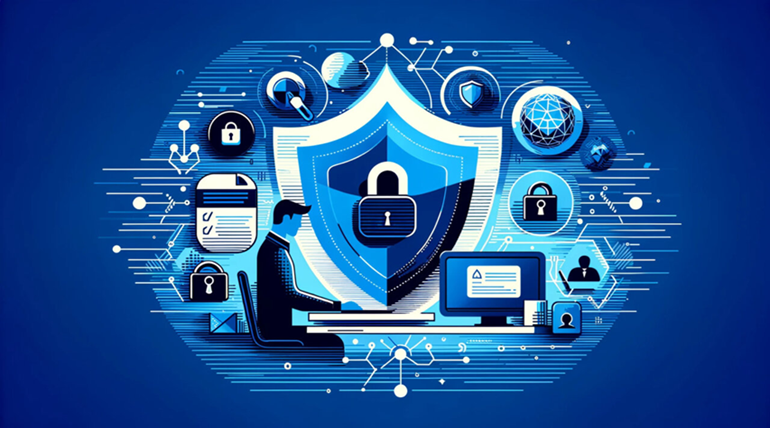Cybersecurity Awareness: Protecting Yourself in the Digital Age

1 year ago
Cybersecurity Awareness: Protecting Yourself in the Digital Age
In today’s interconnected world, cybersecurity is no longer optional—it’s essential. As we embrace technology in every aspect of our lives, the risks associated with cyber threats grow exponentially. From personal data breaches to ransomware attacks on businesses, the need for cybersecurity awareness has never been greater. In this blog post, we’ll explore what cybersecurity awareness means, why it’s important, and practical steps you can take to protect yourself online.
What is Cybersecurity Awareness?
Cybersecurity awareness is the understanding and practice of recognizing online threats and taking steps to minimize risks. It involves knowing how to identify phishing attempts, understanding the importance of strong passwords, and being mindful of your digital footprint. In essence, it’s about staying vigilant and proactive in the digital space.
Why is Cybersecurity Awareness Important?
Protecting Personal Information
Your personal data—like bank details, social security numbers, and login credentials—is highly valuable to cybercriminals. A single data breach could lead to identity theft, financial loss, or worse.
Safeguarding Businesses
For organizations, a lack of cybersecurity awareness among employees can result in data breaches, reputational damage, and hefty financial losses. Many cyberattacks exploit human error, such as clicking on malicious links or downloading infected attachments.
Preventing Cybercrime Growth
As awareness increases, individuals and businesses become harder targets, making it less profitable for cybercriminals to operate. Educating yourself and others is a vital step in reducing cybercrime.
Common Cybersecurity Threats
- Phishing: Scammers use deceptive emails, messages, or websites to steal sensitive information.
- Ransomware: A type of malware that locks your files until you pay a ransom.
- Malware: Malicious software designed to disrupt, damage, or gain unauthorized access to systems.
- Password Attacks: Methods like brute force or credential stuffing to crack weak passwords.
- Social Engineering: Manipulating people into divulging confidential information.
Practical Tips for Cybersecurity Awareness
1. Use Strong Passwords and Enable MFA
- Create unique passwords for every account, combining upper and lowercase letters, numbers, and symbols.
- Enable multi-factor authentication (MFA) for an extra layer of security.
2. Be Cautious with Emails and Links
- Avoid clicking on suspicious links or downloading attachments from unknown senders.
- Verify the sender’s email address carefully, as phishing emails often mimic trusted organizations.
3. Keep Your Software Updated
- Regularly update your operating system, antivirus software, and apps to protect against known vulnerabilities.
4. Secure Your Wi-Fi
- Use a strong password for your home Wi-Fi network and consider encrypting it.
- Avoid using public Wi-Fi for sensitive transactions unless you’re connected to a VPN.
5. Back Up Your Data
- Regularly back up important files to an external drive or a secure cloud service to safeguard against data loss.
6. Educate Yourself and Others
- Stay informed about the latest cybersecurity threats and best practices.
- Share your knowledge with family, friends, and colleagues to create a safer digital environment.
The Role of Organizations in Cybersecurity Awareness
Organizations play a critical role in promoting cybersecurity awareness among employees. Regular training sessions, phishing simulations, and clear cybersecurity policies can help create a culture of security within the workplace. By empowering employees with knowledge, businesses can significantly reduce their risk of cyberattacks.
Conclusion
Cybersecurity awareness is not just a technical skill—it’s a life skill. In an era where our personal and professional lives are deeply intertwined with technology, staying informed and proactive about cybersecurity is essential. Whether it’s using strong passwords, identifying phishing attempts, or securing your devices, every small step counts.
Remember, cybersecurity is a shared responsibility. By staying vigilant and spreading awareness, we can all contribute to a safer digital world.
What steps have you taken to protect yourself online? Share your tips and experiences in the comments below!
©everlastcyber™





4 Comments
Angela Thompson
This is such an insightful post! I never realized how vulnerable public Wi-Fi can be until I got hit with a phishing attempt. Enabling MFA has been a game-changer for me. Thanks for highlighting these tips!
Jonathan M
This post is spot on! Phishing attacks are getting more convincing every day. I’ve started educating my kids about online safety, and your tips will definitely help.
Kay
Thank you
Kay
wonderful